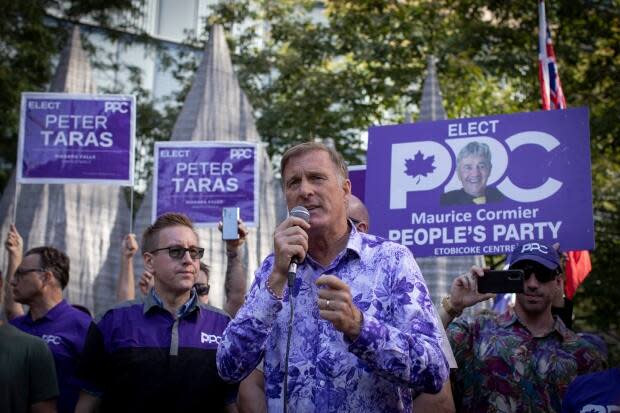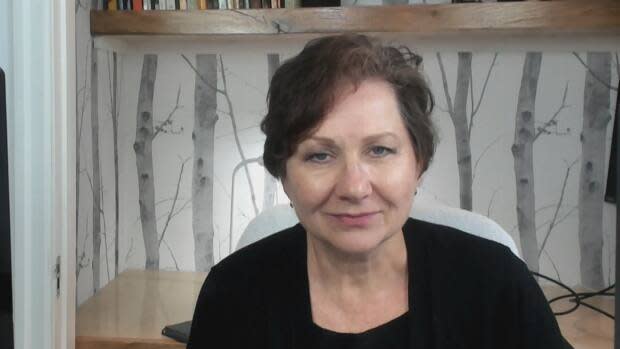PPC played smaller role in local outcome than expected, professor says

In the lead-up to the federal election, there were concerns among Conservatives that votes for the People's Party of Canada could cut into the party's support — and seat count — but one expert says the PPC made less of an impact locally than she expected.
Lydia Miljan, a political science professor at the University of Windsor, noted that all of the Conservative incumbents were re-elected in Windsor-Essex and beyond in Monday's vote.
"I did see a lot of [PPC] signs in the county, both in Essex but also in the Chatham area … but in our area, really from Essex all the way to London, it continued to stick with Conservative support," she said.
In Windsor–Tecumseh, PPC candidate Victor Green captured 11 per cent of the vote — more than 5,800 votes, according to the most recent results available on Tuesday evening.

In that riding, if Conservative Kathy Borrelli had received her share of the vote — 26 per cent — along with that of Green, she would have defeated Liberal Irek Kusmierczyk, who is projected to narrowly win his seat with 32 per cent of the vote.
Support for the party's candidate in Windsor West, Matthew Giancola, was at nine per cent or nearly 4,000 votes — not enough to affect the outcome either way if it were transferred to the Conservatives. NDP MP Brian Masse is projected to win an eighth term.
In Essex, Beth Charron-Rowberry received nearly 6,800 votes, or 10 per cent of all the ballots cast in the riding, though incumbent Conservative Chris Lewis still won by a margin of nearly 6,300 votes.
Support twice as high
The PPC received a much greater share of the local vote than the party did nationally. With more than 99 per cent of polls reporting, PPC support is pegged at 5.1 per cent of the popular vote across Canada.
Ahead of the election, Conservative Leader Erin O'Toole suggested that PPC votes would cut into Tory support and leave an opening for Liberal victories.
"There are actually millions of Canadians who are very frustrated with Mr. [Justin] Trudeau," O'Toole said in London on the Friday before the election, without referring to the PPC by name. "If they allow that frustration to do anything other than vote Conservative, they're voting for Mr. Trudeau."
'More of a protest'
The PPC, founded by former Tory Maxime Bernier, started as a right-wing fringe party that only captured 1.6 per cent of the popular vote in the 2019 general election. During this campaign, the party attracted criticism as well as fresh support for its rhetoric around pandemic public health measures and vaccination requirements.
The party's London-area riding president was ousted after being accused of throwing gravel at Liberal leader Justin Trudeau. He has been charged with assault with a weapon.
Miljan said she is skeptical of whether the PPC has legs as a party beyond its stance on issues related to the pandemic.
"They were a factor [in the election], but I think their factor is more as a protest against [COVID-19] vaccination, against all the mandates, against lockdowns," she said.

Rick Fuschi, a former Conservative candidate who supported the PPC in this election, said he tends to agree with the assessment that support for the party is more of a protest vote. He said he voted PPC because of the local candidate. His objective was to vote out the Liberal candidate, and he would have perhaps considered voting NDP, he said.
"I did like the candidate [Victor Green] very much and I hope he doesn't fade away," he said.
Local PPC candidates who spoke with CBC News during the campaign sought to position the party as an alternative to the mainstream political options — including the Conservatives, whose platform they lumped in with the other parties.
"The only vote splitting going on is between the Conservatives, NDP and Liberals," Charron Rowberry said in a previous interview. "It's either basically you vote for freedom with the PPC, or you vote for the establishment parties and nothing's going to change."

